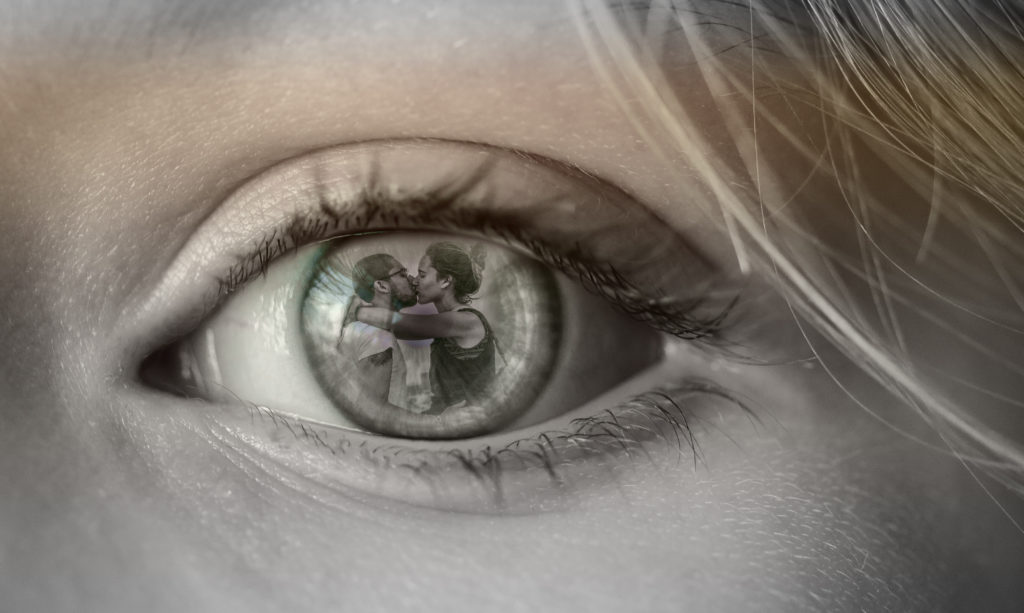Postponed wedding. How can you face this difficult situation and overcome the sadness? Dr. Silvia Pasqualini, psychologist and psychotherapist, founder of “Il corpo e la mente”, give you all the answers.
This blog is all about marriage. Right now, all over the world we are talking about postponed weddings due to the ongoing Coronavirus emergency.
I have been offering my expertise for weeks now and through this blog and my communication channels I am trying to answer your most frequently asked questions.
Postponing a marriage is certainly the main concern of 2020 bride and groom. Before delving even further into the practical advice summarized in my previous article (if you haven’t read it yet, here it is) I would like to give you a psychological support to face the situation you are in.



Postponing a marriage can lead to anger or sadness, and just as it does when facing a loss, it can lead to a profound lack of energy and planning. However, if you think that postponing the wedding is a temporary loss and that with a little time and flexibility you will be able to resume your plans, you will be able to slowly catch a glimpse of a new light.
But let’s take a step back. The couple who today face the certainty or the worry of having to postpone their long-desired marriage are experiencing a real loss. Consequently, a specific reaction of our mind (and also of our body) occurs.
Psychology has always been key to my understanding of existence. I have studied it and tried to apply it in my daily life and in my work. Therefore, in this article I would like to give you an informed and competent opinion to see the situation you are experiencing in a new perspective.



I interviewed for you a friend of mine, a psychologist and psychotherapist specialized in Bioenergetic Analysis who has been offering her knowledge and passion for years, promoting the importance of balance between mind and body.
Her name is Silvia Pasqualini, but on the web, she’s known as “Il corpo e la mente“.
Hi Silvia, many thanks for accepting the invitation to my Instagram live shows! I will start immediately with a specific question. Why can we compare a postponed marriage to the experience of grief?
Hi Tania, I’m glad you brought me in, thank you. Grief is not only the loss of a loved one, it can also be the loss of a job, the end of a relationship or even a very important plan to be postponed. Regarding the latter case, we can analyze what is going on in the minds of the couple who have to postpone their wedding.
“Are there any specific stages that lead to grief processing?”
Studies in our field have shown that people in pain or bereavement experience specific stages of pain. The most commonly observed phases are those described by the Kübler-Ross model.
According to this model, the first defense mechanism employed to deal with the pain of loss is Denial. At this stage the individual tends to deny and move away from himself the event that causes the pain.
Therefore, talking about the couple who are forced to postpone their marriage, they may experience thoughts such as: “This event does not concern me, I do not want to hear about it, it’s all right” etc.
After this stage one moves on to the so-called Resistance, a phase of struggle with oneself that is very exhausting. In this moment the bride and groom become aware of the situation and begin to think they have to do something: “Should I check how long the publications will remain valid?” “Maybe I should call the location to reschedule the date?” Etc. They ask a lot of questions but can’t act. They remain still, powerless, sad or angry.
This phase gets metabolized and the mind, so to speak, reactivates itself. We then move on to Processing in which we begin to rediscover desire and energy. At this moment the exploration of the possibilities begins. What commonly happens is that at the beginning of this phase all the options evaluated are not liked by the subject.
Speaking of our bride and groom, we can say that at this moment they will start planning again, but initially any option considered will not be convincing. All the variations to the initial design will disappoint, they will seem imperfect, inadequate, bad.
Which advices would you give to the bride and groom to deal with the Processing phase and arrive more serenely at the last phase of the Integration of Change?
The first advice I would like to give is to avoid comparison with the initial project.
When the couple decided to make their move, they considered all aspects of wedding planning and considered options for each issue. Even then, they made choices and compromised according to their needs, possibilities and limitations. This path seems forgotten over time and the “ready-made” project has become perfect in their eyes and in their minds.
Well, if the couple is in the processing stage now, I recommend avoiding any comparison that would inevitably lead to lower energy levels.
The second advice I would like to give is to establish a guideline on the basis of which to address any decision. This way they will not experience the choices as renunciations, but as compromises necessary to meet the guideline.
For example: Paolo and Francesca establish that the guideline for the reprogramming of their marriage is to get married by 2020. This will probably involve moving the event into autumn or winter. So they will have to consider an indoor dinner rather than one in the garden of the chosen location. If Paolo and Francesca will always keep the guiding principle in mind, an indoor dinner will be the best choice to make to celebrate their wedding in 2020.



Can you suggest some simple techniques that can help our couples on this journey?
Put an inner state of discomfort into words can be very helpful. Some couples, however, could benefit from implementing the “Conspiracy of Silence” technique.
With this technique, the couple agrees to not talk about the subject for a period of time (or to deal with it at a specific time of the day). So slowly they will be able to overcome discontent and anger without fueling it with constant complaints.
Another effective technique could be that of Writing (handwriting, to make both hemispheres of our brains work). All one needs is a notebook and a pen with which to write a letter at any time of the day (better if it’s always the same).
To whom? To whoever you want to, the important thing is to put on paper thoughts and feelings of that moment. With the passing of the days you will realize that you are living a real journey of change.
Finally, I want to suggest the technique of the Visualization. Dear Paolo and Francesca, close your eyes. Picture what your dinner could be like in the hall of the location lit by candles and warmed by soft autumn tones. Visualizing helps to create reality, to enter into it and to become attached to its images.
Thank you Silvia for your skilled analysis and valuable suggestions.



Finally, I would like to share with readers what is our common thought. Marrying after the emergency we are experiencing will create weddings where the hugs will be tighter and the kisses will be warmer.
What we are experiencing will increase the intensity and value of your marriage! Your party will be very emotional and your guests will be twice as eager to celebrate with you.

